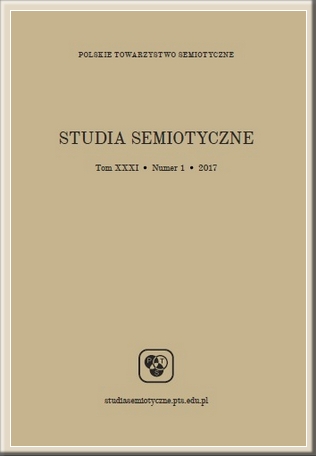Abstract
DOI: http://doi.org/10.26333/sts.xxxi1.03
The first aim of this paper is to remind the reader of a very original theory of meaning which in many aspects has not been surpassed by subsequent theories. The theory in question is Kazimierz Ajdukiewicz’s Directival Theory of Meaning. In the first section I present a version of this theory which, I trust, retains the gist of the original but loses its outdated language. In the second section I analyze some problematic consequences of the directival theory (specifically Tarski’s counterexample) and show how they can be addressed. The second aim of this paper is exploiting some of the similarities between the directival theory and later theories of meaning. In the third section I argue that using the directival theory as an interpretative tool enables us to create explications of some of the notoriously vague notions which contemporary theories of meaning employ.
References
Ajdukiewicz, K. (1934), “Sprache und Sinn”, Erkenntnis 4(1), pp. 100–138.
Ajdukiewicz, K. (1978a), Language and Meaning, in: J. Giedymin (ed.), The Scientific World-Perspective and Other Essays, 1931–1963, Dordrecht: Springer, pp. 35–66.
Ajdukiewicz, K. (1978b), On The Meaning of Expressions, in: J. Giedymin (ed.), The Scientific World-Perspective and Other Essays, 1931–1963, Dordrecht: Springer, pp. 1–34.
Ajdukiewicz, K. (1978c), The Problem of Empiricism and the Concept of Meaning, in: J. Giedymin (ed.), The Scientific World-Perspective and Other Essays, 1931–1963, Dordrecht: Springer, pp. 306–319.
Ajdukiewicz, K. (1985a), Język i znaczenie, in: Język i znaczenie, vol. 1, Warszawa: PWN, pp. 145–173.
Ajdukiewicz, K. (1985b), O znaczeniu wyrażeń, in: Język i znaczenie, vol. 2, Warszawa: PWN, pp. 31–77.
Block, N. (1986), “Advertisement for a semantics for psychology”, Midwest Studies in Philosophy 10(1), pp. 615–678.
Buszkowski, W. (2010), O równoznaczności wyrażeń w ujęciu Ajdukiewicza, in: J. Grad, J. Sójka, A. Zaporowski (eds.), Nauka – Kultura – Społeczeństwo. Księga jubileuszowa dedykowana Profesor Krystynie Zamiarze, Poznań: Wydawnictwo Naukowe Uniwersytetu im. Adama Mickiewicza
Carnap, R. (1959), Introduction to Semantics, and Formalization of Logic, Cambridge: Harvard University Press
Chomsky, N. (1995), “Language and Nature”, Mind 104(413), pp. 1–61
Field, H. (2001), Truth and the Absence of Fact, New York: Oxford University Press.
Fodor, J.A. (1975), The Language of Thought, New York: Crowell
Fodor, J.A., Lepore, E. (1992), Holism: A Shopper’s Guide, Cambridge, Mass.: Blackwell
Hanusek, J. (2013), “On a Non-Referential Theory of Meaning for Simple Names Based on Ajdukiewicz’s Theory of Meaning”, Logic and Logical Philosophy 21(3), pp. 253–269.
Nowaczyk, A. (2006), Dyrektywalna teoria znaczenia, czyli dramat Filozofa, in: J. Pelc (ed.), Sens, prawda, wartość: filozofia języka i nauki w dziełach Kazimierza Ajdukiewicza, Witolda Doroszewskiego, Tadeusza i Janiny Kotarbińskich, Romana Suszki, Władysława Tatarkiewicza, Warszawa: Biblioteka Myśli Semiotycznej.
Plato (1998), Cratylus, Indianapolis: Hackett Pub. Co.
Putnam, H. (1975), The Meaning of “Meaning”, in: Mind, Language and Reality: Philosophical Papers, vol. 2, Cambridge, Mass.: Cambridge University Press, pp. 215–271.
Putnam, H. (1991), Representation and reality, Cambridge, Mass.: MIT Press.
Quine, W.V.O. (1969), Ontological Relativity & Other Essays, New York: Columbia University Press.
Quine, W.V.O. (2013), Word and Object, Cambridge, Mass.: MIT Press
Sellars, W. (1963), Science, Perception and Reality, London; New York: Routledge and Kegan Paul; Humanities Press.
Wittgenstein, L. (1967), Philosophical Investigations, Oxford: Blackwell.


